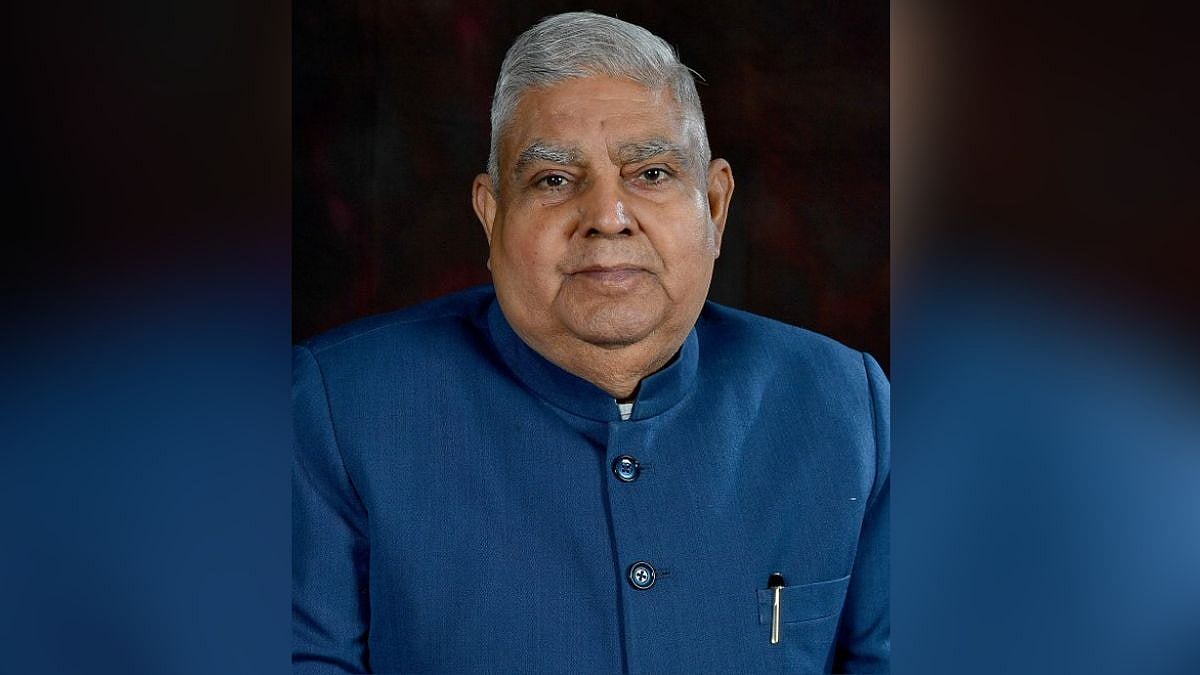Lord John Dalberg Acton had said, “Power corrupts, and absolute power corrupts absolutely.” He said this in 1887.
Today, it can be said that power also brings about arrogance, and absolute power brings about absolute arrogance. Along with arrogance comes contempt for dissenting voices. This has been observed in India, the United States and many other countries.
Until now, the contempt for a dissenting voice was confined to the voices of those in the political or social arena. Many of those whose views are unacceptable to those in power have faced physical attacks and have been haunted by government agencies or by fabricated cases. Now contempt for a dissenting judiciary is reflected in a big way.
In school we have been taught that legislative bodies are the seat of democracy, where members have the freedom to speak without fear. But that has remained on paper, as elected representatives who disagree with those in power are not allowed to air their views in the legislative bodies, either by the ruling party members or by the presiding officers. This is proportional to the level of the legislative bodies; the higher one goes, the stronger the controls.
Shouting down members of the opposition by the ruling party members is a common practice. When they fail, the presiding officers take over and silence them by expunging their statements, switching off their mikes or denying them an opportunity or enough time to have their say.
In keeping with the highest parliamentary tradition, the Speaker of the Lower House and the Chairperson of the Upper House must set aside their political affiliations and be neutral while discharging their duties. In most cases, these presiding authorities are found to be deviating from this practice, not just in the lower legislative bodies, but in the Lok Sabha and the Rajya Sabha too. For instance, Rajya Sabha Chairperson Jagdeep Dhankhar finds it difficult to keep aside his affiliation with the Bharatiya Janata Party. This was seen when he was the Governor of West Bengal, and that continues in his current role. Dhankhar has come a long way and clearly has his eyes on the President’s post, for which he has to be in the good books of the supreme leader, and he does not leave a single opportunity to do so. There are many like him in the Parliament who lack the requisite qualities to be in such august posts but are there only due to their loyalty to the supreme leader.
Dhankhar’s predecessors have been eminent personalities of great intellect. All of them brought glory to the office they held by following the highest democratic norms and practices.
Dhankhar’s recent salvo against Article 142 of the Constitution, describing it as a nuclear missile, can be seen more as a political statement rather than a critical review of the Article. His statement came in light of the Supreme Court judgement on the Tamil Nadu case, where the apex court observed that governors must give their assent to the bills passed by the legislature. The direction was essential since most governors these days are guilty of playing second fiddle to the centre. This was true in Dhankhar’s case too, when he was the West Bengal governor.
By calling Article 142 a nuclear missile, Dhankhar is not only denying the need for checks and balances between the legislature and the judiciary but also questioning the wisdom of the people who wrote the Constitution.
Dhankhar has taken objection to the 3-month deadline the Supreme Court has set for the President to clear the bill. The Vice-President should not forget that we live in a democracy and not a monarchy and that the President is accountable to the citizens, hence subject to correction by the judiciary. Along with rigidly applying the letter of the law, it is also the duty of the judiciary to see the intent behind legislative directives.
One of the earliest and clearest statements on the separation of powers between the two pillars of democracy was made by
Talking about his theory of the separation of powers in his book The Spirit of Law, published in 1748, Montesquieu says, “When the legislative and executive powers are united in the same person or in the same body of magistrates, there can be no liberty… there is no liberty if the power of judging is not separated from the legislative and executive… there would be an end to everything if the same man or the same body… were to exercise those three powers.”
Soon after Dhankhar’s statement, BJP MP Nishikant Dubey held the Supreme Court responsible for a “civil war” in the country. The BJP has repeatedly been announcing that it plans to establish a Hindu Rashtra. In light of this, the BJP leadership needs to read what Samuel Taylor Coleridge said in The Statesman’s Manual.
In his book, Coleridge encourages politicians to view their roles as a form of moral stewardship, where their decisions should align with ethical and spiritual values. He critiques the reliance on mere pragmatism or utilitarianism in politics, advocating instead for a deeper, principled approach rooted in the divine wisdom of scripture. By doing so, he believes statesmen can achieve not only effective governance but also the moral elevation of society.
The author is a senior journalist and media trainer. He tweets at @a_mokashi
